
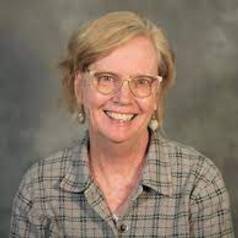
Lorraine Dowler
Professor of Geography and Women's Gender and Sexuality Studies, Penn State
Lorraine Dowler is a Professor of geography and women, gender, and sexuality studies at Penn State University. Her scholarship is rooted in a feminist approach to geopolitics that enables more fluid conceptualizations of compassion, identity, and individuality related to understanding everyday life, private spaces, and the lives of women and other vulnerable groups.
Less ![]()
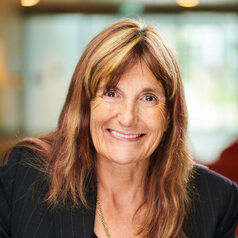
Lorraine Green
Senior Lecturer in Social Sciences, Edge Hill University
Lorraine studied for a degree in Social Policy/Administration at the University of Cardiff in the 1980s because of her interest in social justice and equality. Then, after working in social care with adults and children with learning disabilities in Wales for two years within a city wide innovative ‘normalisation’ project (1984-1986), she undertook a professional qualification and a Master’s degree in Social Work at the University of Birmingham (1986-1988). Following this she worked for approximately four years in child protection and mental health social work in Salford.
In 1993/4 Lorraine changed career trajectory to research and higher education and worked as a research assistant on a large-scale health care evaluation project based at Southbank University. In 1994 she was offered a funded research studentship at Huddersfield University and undertook a sociology PhD which explored and analysed the sexuality, sexual abuse and exploitation issues which affected ‘looked after’ children living in residential care settings. Between 1998 and 2000 she worked as a research fellow in the Centre for Applied Childhood Studies within Huddersfield University, managing, coordinating and evaluating a European research project assessing the balance between legal intervention and therapeutic support for sexually abused children in three European countries.
In the early 2000s (2000-2003) Lorraine worked as lecturer/senior lecturer in Sociology at Sheffield Hallam University. From 2003 to 2013 she was a lecturer in social work at the University of Manchester and between 2013 and 2016 she was employed as an assistant professor in Social Work at the University of Nottingham. In 2017 she took up a post as senior lecturer in social sciences here at Edge Hill University, returning to her sociological and social policy roots.
Lorraine is therefore a very experienced cross-disciplinary academic, having been in higher education for well over twenty years and having taught, researched and published on many different topics over this time. Her key research interests are sociology of age and the life course, sociology of the body, and the sociology of childhood, in particular children in difficult circumstances, ‘looked after’ children and gender, sexuality, sexual abuse and children. Lorraine also acted as an expert academic witness on a Dutch governmental committee in 2013 which was charged with investigating the sexual abuse of children in residential care in Netherlands between 1945 and 2010. Lorraine has done much undergraduate and postgraduate teaching in sociology, social policy and social work. She is an enthusiastic, imaginative and diligent lecturer, committed to supporting her students reach their full potential. Furthermore, she has acted as an external assessor and validator on MA programmes in other universities. She has also internally and externally examined and supervised a number of successful sociology and social work PhD students. She would welcome discussions with potential PhD applicants who feel they could benefit from her supervision and she is skilled in qualitative research, particularly sensitive topic research.
Less ![]()
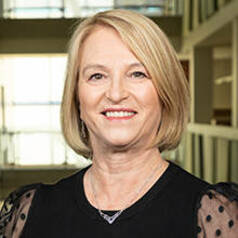
Lorraine Mackenzie
Associate Professor, Clinical and Health Sciences, University of South Australia
Associate Professor Lorraine Mackenzie is affiliated with Clinical and Health Sciences, University of South Australia and the Therapeutics Research Centre, Basil Hetzel Institute for Translational Health Research, Adelaide, South Australia.
Her research interests include drug development and design, including those for skin conditions.
Less ![]()
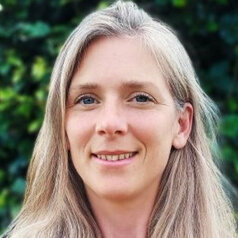
Lotte van Poppel
University of Groningen
Lotte van Poppel is an argumentation scholar and discourse analyst. She holds a PhD in argumentation theory from the University of Amsterdam. Using insights from argumentation theory, linguistics and persuasion research, she investigates the use and design of argumentative strategies in (health) communication and the ways in which these strategies may evoke criticism or resistance.
ity of Groningen
Less ![]()
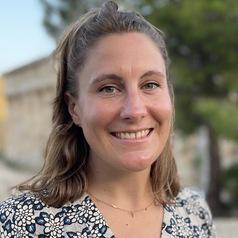
Lottie Howard-Merrill
PhD Candidate, UCL
Lottie is an ESRC-funded PhD student on the UBEL Doctoral Training Programme. Her research will produce action-oriented research on UK policy and community engagement on forced marriage, and evidence on best practice for initiatives in UK schools which strengthen girls’ agency.
Lottie has 9 years’ professional experience across research and practice with expertise in gender-based violence and child sexual exploitation prevention. Her research interests concern the relational elements and everyday enactments of gender, violence, and patriarchal practices that regulate young people’s sexual behaviours.
Less ![]()
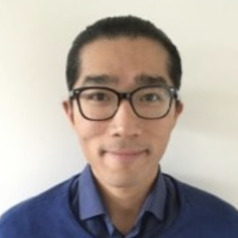
Louie Ye
Clinical Fellow, Department of Obstetrics and Gynecology, The University of Melbourne
Dr Louie Ye is a Clinical Fellow at the Department of Obstetrics and Gynecology, University of Melbourne, at The Royal Women's Hospital.
Less ![]()
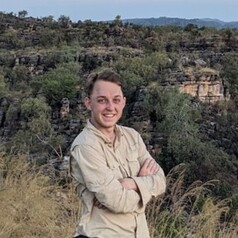
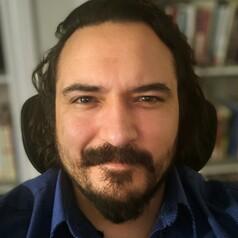
Louis Busch
Community Support Specialist, Shkaabe Makwa Centre for First Nations, Inuit, and Métis Wellness at CAMH, Doctoral Student, University of Toronto
Louis (ᐋᐧᐋᐧᐦᑌᐃᐧ ᒥᐢᑕᑎᒼ) is a Bear Clan member of Nisichawayasihk Cree Nation, a registered psychotherapist, and a board certified behaviour analyst. Louis has two decades of experience supporting the recovery journeys of people who find themselves in contact with the mental health and forensic mental health systems. Louis is a Community Support Specialist with the Shkaabe Makwa Centre for First Nations, Inuit, and Metis Wellness and a psychotherapy associate of the Weaving Wellness Centre, which provides culturally-integrated counselling services to Indigenous Peoples in Ontario, Canada. Louis is a Vanier Scholar and doctoral student at the University of Toronto with current research focused on articulating Indigenous conceptions of helping work within a psychotherapeutic context. Louis has published peer-reviewed research on the treatment of severe behavioural challenges in neurodevelopmental disabilities, forensic mental health populations, interprofessional care, cross-cultural psychiatry, and Indigenous issues. Louis hopes to contribute to positive social change through the advancement of culturally relevant wellness initiatives that promote the recovery and empowerment of marginalized peoples.
Less ![]()
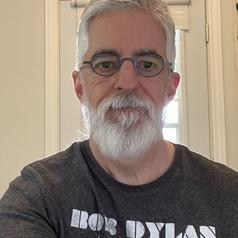
Louis De Grandpré
Chercheur en écologie forestière, Conseil des Innus de Pessamit et professeur associé, Université du Québec à Montréal (UQAM)
Louis De Grandpré est actuellement en affectation professionnelle auprès du Conseil des Innus de Pessamit. Il est chercheur en écologie forestière depuis novembre 2000 au Service Canadien des Forêts. Il étudie le rôle des perturbations naturelles sur la dynamique de la forêt boréale. Il a également contribué au développement de l'aménagement forestier écosystémique qui s'inspire des perturbations naturelles. Louis De Grandpré a un doctorat en sciences de l'environnement de l'UQAM.
Less ![]()
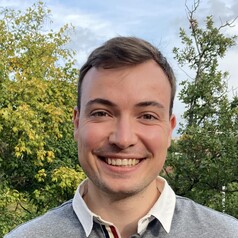
Louis Delannoy
Postdoctoral researcher, Stockholm University
Louis Delannoy is a Postdoctoral Researcher for the Global Economic Dynamics and the Biosphere programme (GEDB) of the Royal Swedish Academy of Sciences and the Stockholm Resilience Centre.
A transdisciplinary scholar, Louis combines various research fields to understand how multiple environmental and social shocks interact to create systemic crises, with a focus on the role of the global production ecosystem. More specifically, he examines how shocks are transferred, absorbed and linked together across space, time and sectors of society and develop methods to empirically answer these questions. Other research interests range from political ecology to economic anthropology.
Louis´s academic credentials include a B. Sc. in Civil Engineering and M. Sc. in Energy Management and Sustainability, both from EPFL, as well as a PhD in Applied Mathematics from the University of Grenoble Alpes. His PhD thesis explored the systemic risks emerging from the interaction between energy, finance and the economy, from an ecological economics perspective.
Keywords: systemic risks, ecological economics, energy transition, sustainability, EROI, Integrated Assessment Models.
ORCID: 0000-0002-5821-2597
https://scholar.google.com/citations?user=Lgu3FI8AAAAJ&hl
Less ![]()
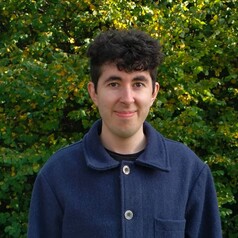
Louis Fletcher
Research Fellow in the Geopolitics of Energy, Warwick Business School, University of Warwick
I'm a Research Fellow at the University of Warwick, and a member of the UK Energy Research Centre, working on the politics of the transition to net zero.
Less ![]()
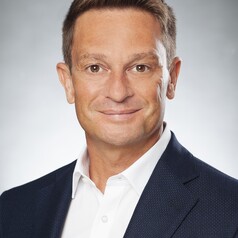
Louis Kotzé
Researcher at the Research Institute for Sustainability Helmholtz Center, Potsdam and Research Professor of Law at the Faculty of Law, North-West University
Louis Kotzé is research professor of law at the Faculty of Law, North-West University, South Africa, where he teaches international and African regional environmental law in the structured LLM programme. In 2022 he was Klaus Töpfer Sustainability Fellow at the Research Institute for Sustainability Helmholtz Center in Potsdam.
He is also senior professorial fellow in Earth system law at the University of Lincoln, United Kingdom. His research broadly encompasses three interrelated themes that he approaches from a transnational perspective: human rights, socio-ecological justice and environmental constitutionalism; law and the Anthropocene; and Earth system law. He has over 150 publications on these themes. Recent books include: Research Handbook on Human Rights and the Environment (with Anna Grear-Edward Elgar, 2015); Global Environmental Constitutionalism in the Anthropocene (Hart, 2016); Environmental Law and Governance for the Anthropocene (Hart, 2017); Sustainable Development Goals: Law, Theory and Implementation (with Duncan French-Edward Elgar, 2018); Research Handbook on Law, Governance and Planetary Boundaries (with Duncan French-Edward Elgar, forthcoming). He is assistant editor of Earth System Governance. In 2016 he obtained a second PhD at Tilburg University, Netherlands, and he was awarded a European Commission Horizon 2020 Marie Curie Fellowship to lead a research project at the University of Lincoln titled: Global Ecological Custodianship-Innovative International Environmental Law for the Anthropocene (GLEC-LAW).
Less ![]()
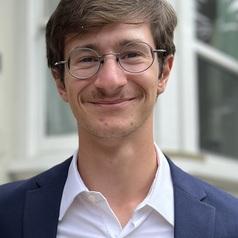
Louis Massé
PhD Student, Political Science, L’Université d’Ottawa/University of Ottawa
Louis Massé is a PhD student in Political Science at the University of Ottawa. His research interests are political economy, political sociology, and economic sociology, in Canada and other liberal democracies. He previously completed a MA and a B.Sc at the Université de Montréal in political science and political economy.
Less ![]()
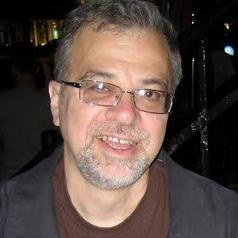
Louis Parascandola
Professor of English, Long Island University, Brooklyn
Louis J. Parascandola is Professor of Humanities at Long Island University, Brooklyn. He has edited several anthologies on Black American authors as well as a collection of writings about Coney Island.
Less ![]()
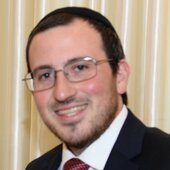
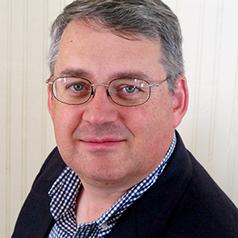
Louis M. Kyriakoudes
Director, Albert Gore Research Center and Professor of History, Middle Tennessee State University
Louis M. Kyriakoudes is director of the Albert Gore Research Center and Professor of History at MTSU. He is an acclaimed historian who served as the Oral History Association's co-executive director from 2018 to 2022. He holds a Ph.D. in history from Vanderbilt University and received additional training in demography and public health as a National Institute of Child Health and Human Development postdoctoral fellow. He has won grants from the Economic History Association, U.S. Department of Commerce, the National Endowment for the Arts, the National Endowment for the Humanities, and the National Parks Service to support research and public programs. He is the author of The Social Origins of the Urban South: Race, Gender and Migration in Nashville and Middle Tennessee, 1890-1930 (University of North Carolina Press, 2003), co-editor (with Susanna Delfino and Michelle Gillespie) of Southern Society and Its Transformations, 1790-1860 (Missouri, 2011), and the author of many articles and book chapters.
Less ![]()
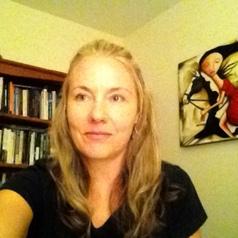
Louisa Allen
Professor, Faculty of Education and Social Work, University of Auckland
Professor Louisa Allen is a graduate of The University of Auckland and the University of Cambridge. She has taught at both of these universities in the area of educational sociology, the sociology of youth, research methodologies, feminist post-structural theories and theories of gender. Her research interests lie in the area of sexualities, sexuality education, youth, gender and schooling. This work is informed by feminist new materialism, queer theory and sensory methodologies.
Less ![]()
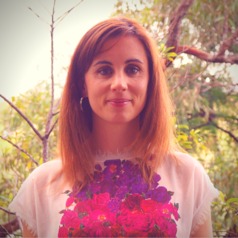
Louisa Owens
Senior Conjoint Lecturer, UNSW Sydney
Louisa is a Consultant Respiratory Paediatrician at Sydney Children’s Hospital with a special interest in asthma management and the epidemiology of respiratory health of children. She is also working on her PhD entitled “The impact of early life factors versus lifestyle on the respiratory health of young adults” through the University of Western Australia, for which she was awarded scholarships from both the University and the Asthma Foundation of Western Australia.
Having attained her medical degree at Trinity College Dublin, Louisa completed her paediatric training in Ireland and then carried out a Fellowship in Respiratory medicine at Princess Margaret Hospital for Children in Perth, Western Australia.
Less ![]()

Louisa Shirley
Clinical Lecturer, University of Manchester
I am a Clinical Lecturer and Chartered Clinical Psychologist working at the University of Manchester and Pennine Care NHS Trust. I have predominantly worked with older people in mental health services and research in the areas of behaviour and distress in people with dementia, trauma and complex presentations in older people.
Less ![]()
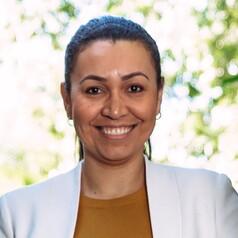
Louisa Warren
Executive Manager, Indigenous Engagement, CSIRO
Louisa Warren is a proud Torres Strait Islander woman with over twenty years’ experience in community engagement, strategy and policy development. She has delivered a range of social and economic development projects in remote, regional and urban Indigenous communities. Louisa is an experienced Reconciliation Action Plan Manager and is the Executive Manager of the Indigenous Engagement team at the CSIRO. Louisa sits on a number of Indigenous Advisory Panels to provide strategic advice to organisations to support their Indigenous Engagement Strategies.
Less ![]()
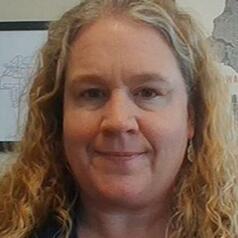
Louisa M. Holmes
Researcher of Geography, Penn State
I am a health geographer and demographer with training in public health and public policy. My research focuses on how place-based inequities produce and reinforce health disparities and how to alleviate those disparities. In my interdisciplinary work, I seek to understand contexts of health and place as foundational to perpetuating health disparities, as well as opportune for promoting health, through social engagement, built and natural environments, and multi-level policy infrastructures. In particular, I currently study neighborhood inequities and stress, and the potentials for urban planning strategies as means of mitigation; and substance use and landscapes of addiction using demographic, geospatial, and mixed research methods.
I have designed and implemented numerous studies involving primary data collection, including probabilistic household surveys of hard-to-reach populations, ecological momentary assessment studies, observational studies, and community-based participatory research projects.
Less ![]()
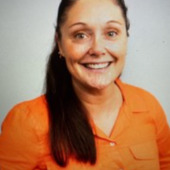
Louisa Rosemary Peralta
Associate Professor in Health and Physical Education at The University of Sydney
Less ![]()
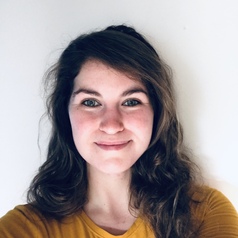
Louise Archer
Postdoctoral Fellow, Biological Sciences, University of Toronto
I am a Postdoctoral Fellow in the Department of Biological Sciences, University of Toronto Scarborough, where I research the responses of polar bears to sea-ice loss from climate change.
My work generally explores the role that physiology and energetics play in mediating how individuals, populations, and communities respond to changing environments, ultimately aiming to improve our ability to conserve and manage at-risk species.
Less ![]()
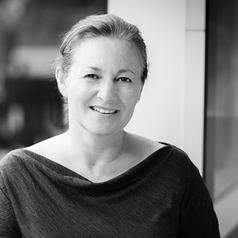
Louise Arseneault
Professor in Developmental Psychology at the Institute of Psychiatry, Psychology and Neuroscience, King's College London
Professor Louise Arseneault is taking a developmental approach to investigate how the consequences of violence begin in childhood and persist to mid-life, by studying bullying victimisation and child maltreatment. She also studies the impact of social relationships including social support, loneliness and social isolation on mental health. Her research aims are to answer questions relevant to psychology and psychiatry by harnessing and combining three different research approaches: developmental research, epidemiological methods and genetically sensitive designs. Louise’s work incorporates social as well as biological measurements across the life span.
She created and developed the Catalogue of Mental Health Measures, a web platform aimed at optimising the uptake of existing mental health and wellbeing measures collected by UK-based longitudinal studies. It provides detailed information about these measures, and it features biological, psychosocial and environmental data. Louise also led the Landscaping International Longitudinal Datasets project, funded by the Wellcome Trust, to scope the world for longitudinal datasets with potential for transformative mental health research.
Less ![]()
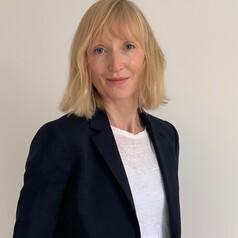
Louise Ashley
Senior Lecturer, Queen Mary University of London
I am a sociologist in a business school studying how social class affects access to the elite professions, and subsequent career progression. I have recently published a book called: Highly Discriminating: Why the City isn't Fair and Diversity doesn't Work. This explores how the City of London has deployed a meritocratic narrative to obscure highly exclusive recruitment and promotion practices, from which it benefits. It also explains how diversity interventions do not work as their primary function is to preserve the unequal status quo.
Less ![]()
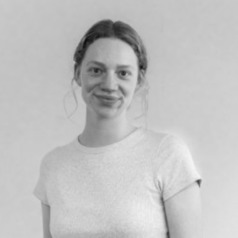
Louise Bardwell
Research Assistant, Battery Storage and Grid Integration Program, Australian National University
Louise Bardwell is a research assistant in the Battery Storage and Grid Integration Program in the School of Engineering at the Australian National University with a background in renewable energy engineering and Pacific/Asian studies. She is interested in transdisciplinary research focused on driving the world's sustainable and equitable pathway to decarbonisation through the use of renewable energy systems and social change.
Less ![]()
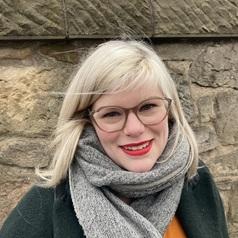
Louise Brangan
Chancellor's Fellow | Senior Lecturer, University of Strathclyde
I am a sociologist of punishment. In particular, I am interested in comparative and historical study of incarceration, penal cultures and penal politics.
In 2023 I was named as on of ten New Generation Thinkers by the BBC and AHRC. I have been the recipient of the Theoretical Criminology Best Article Prize and the British Society of Criminology's Best Article Prize for a new scholar.
I have published on the history of prisons in Ireland and Scotland, comparative punishment, and am currently writing a book on the rise and fall of Magdalene Laundries in the Republic of Ireland.
Less ![]()
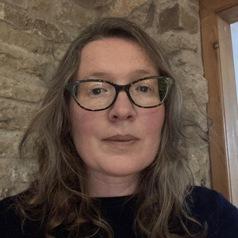
Louise Cooke
Senior Lecturer in Conservation, University of York
Louise Cooke is a conservation expert interested in sustainability, historic buildings, archaeological sites and landscapes. She is internationally recognised for her expertise in the study and conservation of Earth Buildings.
She undertook an undergraduate degree in Archaeology at the University of Birmingham and then worked for the Museum of London Archaeology Service before joining the Archaeology Commissions team at English Heritage. In 2001 she was based in Lebanon working on the archive from the post-civil war Beirut Souks excavations. She then returned to study at the Institute of Archaeology, University College London, undertaking an MA in Managing Archaeological Sites, and her PhD researching approaches to the conservation of earth structures. Her fieldwork was undertaken in Central Asia and the Middle East with particular focus on the multi-period earthen cities of Ancient Merv (Turkmenistan).
From 2006 Louise combined teaching for the Open University with a wide-ranging portfolio of heritage consultancy work including work in the UEA, Peru, Turkey and the UK including the development of a £3.5 million HLF funded Landscape Partnership Scheme. She joined the Department in York in 2016.
Less ![]()
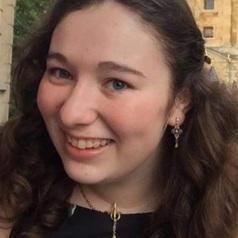
Louise Coyne
PhD Candidate, University of Liverpool
Louise Coyne is a PhD student at the Institute of Irish Studies at the University of Liverpool. She has recently submitted her thesis titled 'The Making of a Militant: How Ireland made Emmeline Pankhurst a Militant'. The thesis focused on the influence of Ireland on Emmeline Pankhurst and her policies as one of the leaders of the Women’s Social and Political Union (more commonly known as the suffragettes). The thesis analysed the tactics of the suffragettes, the Irish inspiration behind the tactics and the differing response by the Government to the suffragettes in comparison to Irish nationalists and Ulster unionists.
Louise's research interests include: women’s suffrage, feminism, modern British history, modern Irish history and protest (violent and nonviolent).
Less ![]()
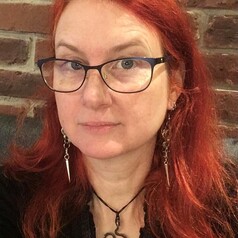
Louise Crabtree-Hayes
Professorial Research Fellow, Institute for Culture and Society, Western Sydney University
I am a Professorial Research Fellow at the Institute of Society and Culture. I was awarded my PhD in Human Geography from Macquarie University in 2007 and have been with Western Sydney University since 2007. I work on housing affordability, sustainability, multi-stakeholder governance, decolonisation, property law, resilience, and citizenship.
Less ![]()
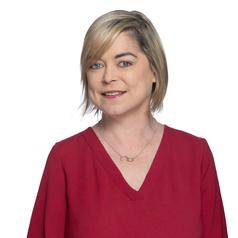
Louise Crowley
Professor of law, University College Cork
Professor Louise Crowley of the School of Law, UCC, is a national voice on intimate partner violence having published widely on the adequacy of legal responses to the challenges of gender-based violence and works with service providers and state agencies to highlight the need for greater targeted investment in service provision.
Louise was a member of the Government appointed expert group that developed the National Framework to End Sexual Harassment and Violence at Third Level in 2019 and she continues to advise on law and policy reform.
In 2016, at University College Cork, Louise developed the campus-wide Bystander Intervention programme which educates and empower staff and students to challenge the normalisation of sexual abuse and to recognise their role as pro-social bystanders to effect change and bring about a new normal of safety and respect. This training is now being delivered in other third level institutions as well as workplaces and sporting organisations.
In 2022, funded by the Irish Research Council, Louise developed a bespoke second level programme, now being piloted in 50 secondary schools nationwide. Louise has recently commenced a 14 month partnership with the Irish Defence Forces to deliver Sexual Respect and Ethics training to members of the Army, the Air Corp and the Navy.
Less ![]()
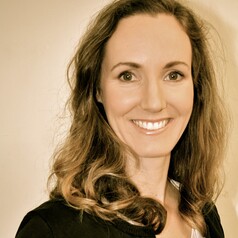
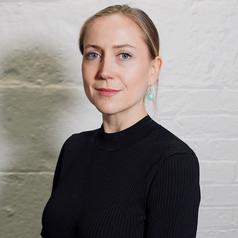
Louise Dorignon
Vice-Chancellor Postdoctoral Research Fellow, RMIT University
Louise Dorignon is a geographer and a Vice-Chancellor Postdoctoral Research Fellow at the Centre for Urban Research in the School of Global, RMIT University. She specialises in the production, lived experience and urban outcomes of apartment housing in Australia and Europe. Louise’s VC Fellowship project focuses on modular apartment prefabrication to analyse how it can enable the production of more sustainable and affordable homes and support everyday experiences of post-carbon housing. Louise has collaborated with a wide range of stakeholders, from material manufacturers and builders, to architects, developers, policymakers, regulators and householders in Australia and internationally, especially in Europe.
Less ![]()
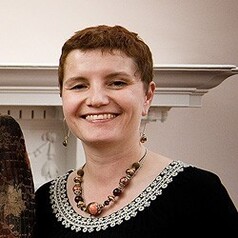
Louise Hampson
Research Fellow in History, University of York
Louise read Medieval English and History at Birmingham University and has an MA In Archive Administration from UCL. She joined the Centre in 2009, having worked in partnership previously through her role at York Minster. Louise recently completed a part-time PhD at York on the history of the stained glass of York Minster since 1500.
Louise worked in the archives sector in the county record offices of Northamptonshire and Warwickshire, specialising in education and outreach and was Head of Collections at York Minster for many years. She co-authored 'York Minster: A Living Legacy' with Dr. Richard Shephard and the Very Revd Keith Jones and has written numerous popular articles on the Minster and its history. She wrote for the CD-ROMs Images of Salvation: the Story of the Bible through Medieval Art and Pilgrims and Pilgrimage and brokered the ongoing partnership between the Centre and York Minster. Louise was associate editor for both The English Parish Church through the Centuries and for the partner disk English Cathedrals and Monasteries through the Centuries, as well writing a number of articles for that disk too. Her research interests are stained glass, manuscript art and Viking and Anglo-Saxon culture.
Less ![]()
- Market Data























